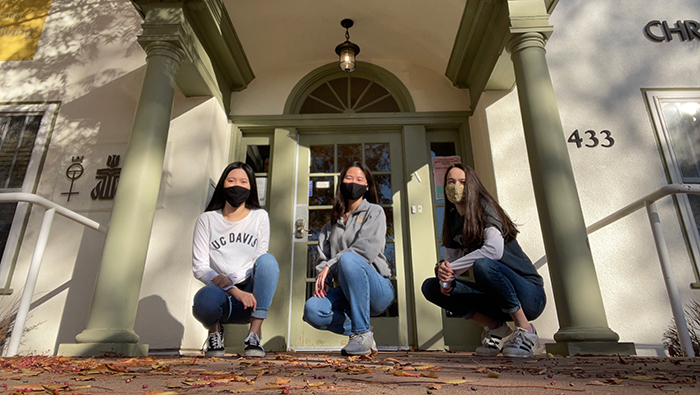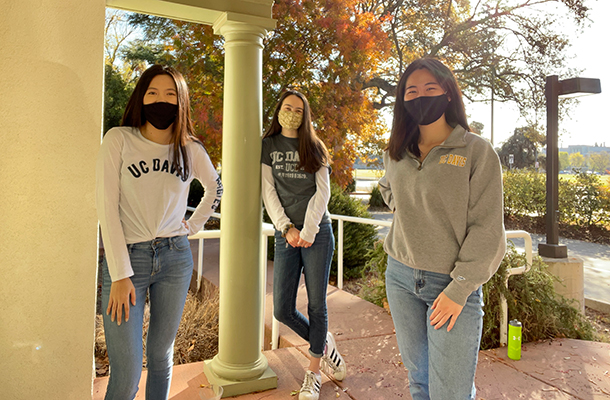
Beginning fall quarter, Aggie House serves as a transitional living space for homeless and food-insecure UC Davis students.
The project was co-founded by undergraduates Allie O’Brien ’21, Katie Shen ’22 and Ashley Lo ’22, who met through ASUCD: O’Brien was chief of staff in the executive office, Lo the elected student advocate, and Shen worked with HOPE at Davis (Homeless Outreach through Prevention and Education).
Nearly one in five students at UC Davis experience housing insecurity or homelessness at some point during the year, according to the 2017-2018 ASUCD-GSA Housing Affordability and Insecurity Survey. The co-founders said they have all met students living in their cars or couch-surfing.
“It’s very unlikely that anybody at Davis hasn’t met somebody who is housing insecure at some point. It’s just that folks are not often comfortable disclosing that due to stigmatization,” O’Brien said.

Modeled after similar housing projects at UCLA and the University of Southern California, Aggie House will provide living arrangements for 10 students in a townhouse at the Cal Aggie Christian Association. The project is funded through the Basic Needs Student Innovation Grant and the Student Programming fund provided by the Aggie Compass Basic Needs Center and the Office of Student Affairs. Crowdfunding events and general fundraising have also helped the cause.
Providing shelter is only one part of Aggie House’s mission; the initiative will also supply breakfast and dinner daily, case management to secure long-term solutions and a community of peers to serve as a support system for tenants. Graduate students from UC Davis and Sacramento State University working toward master’s degrees in social services will serve as case managers.
They will connect students with local pantries, clinics and mental health services through on- and off-campus resources, help them secure permanent housing and health insurance, and apply for basic needs programs such as CalFresh. They will also prepare resource packets for students who are not residents of Aggie House with contact information for basic needs assistance. “We can make this a collaborative effort to help every student that we can,” Lo added.
Residents can reapply to live in the shelter for up to one year, guaranteed. Reapplications are not limited; however, the case managers’ goal is to help students transition out of Aggie House into stable housing after one quarter.
What initially started as an idea between three people has now expanded to include 67 volunteers, 14 people on the board of directors and support from the community with furniture donations. Aggie House has also partnered with the UC Davis Department of Chemistry, which provided and assembled beds for all 10 residents.
“It’s amazing to see how our greater Davis community members are supportive of us. It’s just amazing to see how we can all come together for this common goal of providing basic needs,” Shen said.